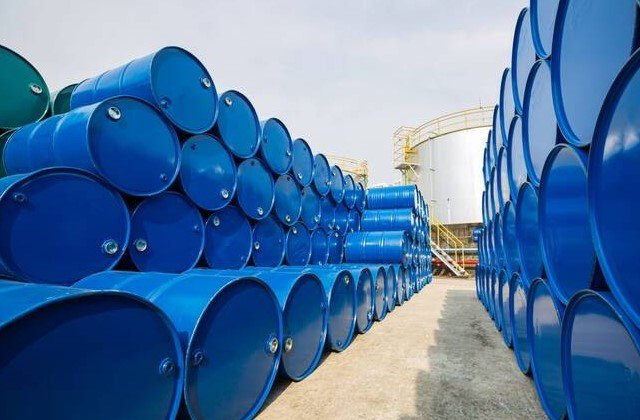Kingdom’s mining surge and financial reforms align to create new pricing power from Riyadh
Saudi Arabia is laying the groundwork for its first homegrown commodities exchange — and this time, it’s not just about oil. The kingdom wants more control over how its growing stockpile of metals and minerals are priced, and it’s setting up shop in Riyadh to make that happen.
The announcement comes as Saudi officials double down on long-term plans to transform the nation’s economy. Deputy Minister for Mining Affairs Khalid Al-Mudaifer confirmed this week that work is already underway with financial institutions to structure the new market — one that could eventually shift pricing dynamics across the Gulf and beyond.
Why Riyadh Thinks Now Is the Moment
The timing isn’t accidental. Saudi Arabia’s mining industry has quietly matured into a sector worth watching. A mining investment law passed six years ago lit the spark. Since then, international interest has grown, and local production of critical materials has spiked.
Al-Mudaifer said at a press conference this week that the exchange idea has been around for a while. But now, the appetite — and the momentum — are finally aligned.
Two big factors are driving this push:
-
Soaring demand for strategic minerals like gold, phosphate, and rare earths.
-
A broader shift in Vision 2030 reforms that aim to wean Saudi Arabia off oil dependency.
There’s also a political edge to the timing. A locally run bourse means the Kingdom no longer needs to depend so heavily on foreign benchmarks for pricing.

A Decade in the Making — But Finally Taking Shape
Back in May 2023, Saudi Arabia’s Shura Council — an advisory body to the government — urged the Capital Market Authority to assess the feasibility of creating a commodities exchange. But the groundwork goes back even further.
According to people familiar with the matter, initial discussions began almost a decade ago, when local producers started questioning why they had to peg prices to markets they had little influence over.
That frustration grew as Saudi Arabia ramped up its exploration and extraction capabilities. By 2024, the kingdom had issued over 500 mining licenses, including for gold, copper, and industrial minerals — and foreign investment was finally flowing.
Still, without its own pricing platform, Riyadh remained a price taker.
What Will Be Traded — and What’s the Strategy?
While exact details are still under review, officials have hinted at a phased rollout. Early trading is likely to focus on metals already being mined in the kingdom — notably gold and phosphate.
Later, more strategic commodities like lithium, copper, and potentially even carbon credits could enter the mix.
Here’s what we know so far:
| Commodity | Likely Exchange Inclusion | Saudi Production Status |
|---|---|---|
| Gold | Yes | Active mines, large reserves |
| Phosphate | Yes | Among world’s top exporters |
| Copper | Possibly in Phase 2 | Exploration licenses issued |
| Lithium | Under consideration | Still early-stage projects |
| Carbon Credits | Future potential | Aligned with green goals |
One person involved in the early framework discussions said the goal is not to replicate London or Chicago, but to build a Gulf-focused exchange that reflects regional realities.
Banking Sector and Regulators in Step
Saudi banks are already involved, particularly those with exposure to industrial and mining financing. The Ministry of Industry and Mineral Resources is coordinating closely with the Capital Market Authority (CMA), which will be tasked with regulatory oversight once the market launches.
Interestingly, this is one of the first major initiatives that will bring together mining policy and financial market regulation under a single umbrella.
One banker in Riyadh put it this way: “It’s not just about setting prices. It’s about creating a marketplace for confidence. The Saudis want buyers in Tokyo, Zurich, or Mumbai to trust a Riyadh benchmark.”
What This Means for the Region — and Beyond
This isn’t just a Saudi story. A Riyadh-based commodities bourse could have ripple effects across the Gulf. For smaller producers in Oman or Jordan, a regional pricing hub could offer an alternative to faraway and often volatile international benchmarks.
More broadly, Saudi Arabia wants to be seen as a stabilizing force in commodities — not just in oil, but in the metals and materials that power clean energy transitions.
The exchange could also serve countries looking for more pricing transparency or less exposure to geopolitical disruptions.
But there’s a long road ahead. Market trust takes time to build, and liquidity doesn’t come overnight.
Still, industry players say the Kingdom has one big advantage: It controls the supply. And when you control the supply, you don’t have to ask for a seat at the table — you make the table.
Next Steps and the Road Ahead
Al-Mudaifer didn’t offer a timeline, but insiders suggest we could see a partial launch within 18 to 24 months, starting with over-the-counter (OTC) trading before moving to full digital platforms.
There’s also talk of international partnerships, possibly with Singapore or China, to help build early credibility.
What remains unclear is how the exchange will handle price discovery. Will it use auctions? Spot contracts? Long-term agreements? All that is still on the table.
But one thing is certain — Riyadh is getting serious.
